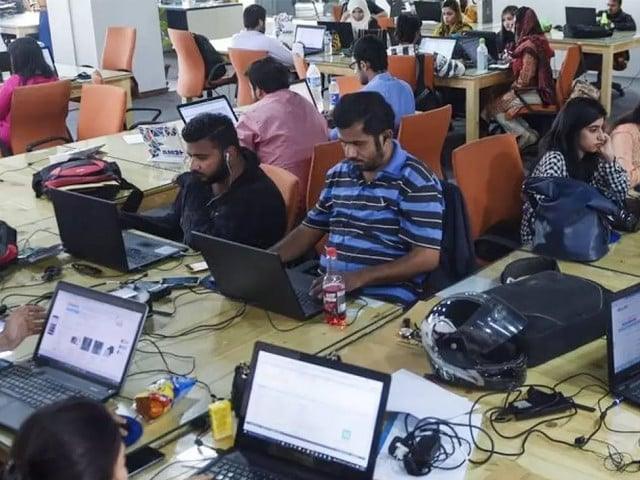Pakistani IT associations and industry experts are urging the government to accelerate the rollout of 5G services and address ongoing issues related to slow internet speeds, as the country faces significant economic losses caused by disruptions. of the Internet.
According to a recent report by global internet monitor Top10VPN.com, Pakistan suffered the world’s largest economic losses due to internet outages in 2024, with total losses reaching $1.62 billion. This figure exceeded losses in conflict-torn countries such as Sudan and Myanmar.
The report, released on January 2, revealed that Pakistan experienced a staggering 9,735 hours of internet outages, affecting 82.9 million users. The disruptions were mainly attributed to political events, including elections and protests.
The Pakistan Software Companies Association (P@SHA) warned last month that the country’s IT sector was at risk of incurring annual financial losses of up to $150 million due to slow internet speeds and restrictions on virtual private networks (VPN).
P@SHA president Sajjad Mustafa Syed said: “Pakistan is suffering a loss of more than $1 million per hour due to internet outages in the country.”
Syed further highlighted the need for urgent action and called on the government to accelerate the deployment of 5G through a spectrum auction scheduled for March 2025. He also advocated fiber optics for mobile phone towers and the installation of new cables. submarines to improve connectivity.
The IT sector has seen positive growth in recent years, with IT-related exports reaching $3.2 billion in fiscal year 2023-24. However, Syed warned that frequent disruptions could undermine the government’s target of $15 billion in IT exports for the current fiscal year.
Tufail Ahmed Khan, president of Pakistan Freelancers Association (PAFLA), highlighted the impact of the internet slowdown on the country’s freelance workforce, which numbers over 2.37 million. Despite these challenges,
Pakistan’s IT exports continued to show growth, although Khan noted that gains could have been higher without the disruptions.
Khan also praised the government’s National Fiberization Policy, announced in November 2024, which aims to expand broadband coverage and improve internet speeds, benefiting the self-employed.
He urged the government to adopt more internet- and VPN-friendly policies, emphasizing that this would encourage self-employed workers to bring more foreign remittances into the country and reduce pressure on government employment schemes.
Zohaib Khan, former president of P@SHA, echoed concerns about the long-term impact of internet shutdowns on Pakistan’s international reputation. He said: “Reports of internet outages are damaging Pakistan’s brand image on the global stage, indirectly affecting the industry.”
Khan suggested that freelancers work from co-working spaces when outages occur to minimize disruption to their work.
In response to recent Internet slowdowns, the Pakistan Telecommunication Authority (PTA) put in place a temporary bandwidth to address disruptions caused by a fault in the Asia-Africa-Europe-1 (AAE-1) submarine cable, which affected the country’s Internet performance. The AAE-1 cable is one of the seven international submarine cables connecting Pakistan to global networks.
The PTA has also announced plans to improve internet speed and connectivity by joining the 2Africa submarine cable system later this year. The 2Africa cable, one of the largest in the world, spans 45,000 kilometers and connects 46 locations in Africa, Europe and the Middle East, offering speeds of up to 180 Tbps.
Additionally, the government is in talks with Elon Musk’s Starlink to introduce satellite internet services in Pakistan, as part of broader efforts to improve connectivity across the country. The challenges posed by internet disruptions continue to weigh heavily on Pakistan’s IT sector, particularly its freelancers.
With growing calls for action from industry experts, the government’s next steps to deploy 5G and address infrastructure gaps will be crucial to mitigate the economic impact and improve the country’s overall position in the digital economy.




